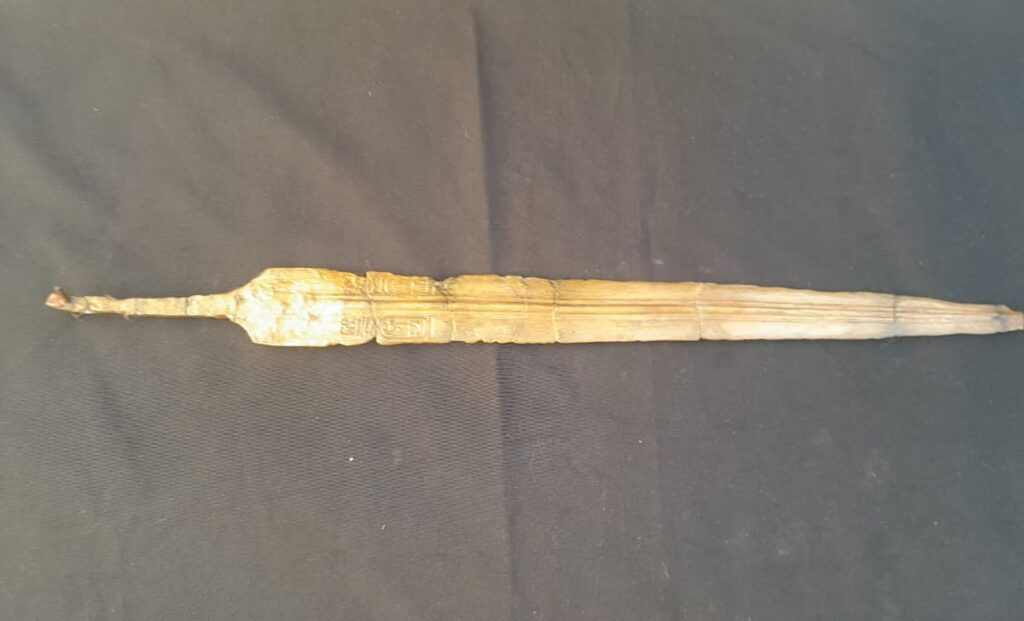Ancient Egyptian sword discovered from time of Moses, book of Exodus
Archaeologists in Egypt have discovered an ancient sword dating back over 3,000 years to the time of Moses and the Exodus of the people of Israel from their Egyptian captivity.
According to…

Archaeologists in Egypt have discovered an ancient sword dating back over 3,000 years to the time of Moses and the Exodus of the people of Israel from their Egyptian captivity.
According to researchers, the sword belonged to members of the military under Ramses II, who many biblical scholars believe is the pharaoh referred to in the Old Testament book of Exodus.
A press release from Egypt’s Ministry of Tourism and Antiquities reported that the sword is part of a collection of artifacts retrieved in an ongoing excavation in the Hosh Issa district of Beheira Governorate, in the northern part of the country. The site consists of a “series of mudbrick architectural units, including military barracks for soldiers and storage rooms for weapons, food, and provisions from the New Kingdom era,” the press release explained.
Among the items recovered were battle weapons including the sword, hunting tools, and personal and hygiene items, “including ivory kohl applicators, carnelian and faience beads, scarabs, and protective amulets,” Egyptian officials said. They added that the artifacts “provide insight into the daily lives, religious beliefs, and military activities of the fort’s occupants.”
Fox News reported that the bronze sword incudes a hieroglyphic symbol of Ramses II, whose name is also spelled Ramesses.
Elizabeth Frood, an Oxford University Egyptologist not involved in the discovery, told the Washington Post that the sword represented a “very striking and a truly remarkable find.”
“For an object to bear the cartouches of Ramses II would suggest to me that it belonged to someone of relatively high rank,” she said. “To be able to display such an object, even though it would have been presumably in a scabbard, was a marker of status and prestige.”
Reported the Post: “Ramses II, the second-longest ruling pharaoh in Ancient Egypt, reigned from 1279 to 1213 B.C., a period marking the final peak of Egypt’s military power. Ramses was known for his ambitious program of construction and keen military prowess – expanding the borders of Ancient Egypt northward into the present-day Levant. Many scholars believe he was also the pharaoh reigning over Ancient Egypt during the time of Moses, who was described in the Old Testament’s book of Exodus as leading the enslaved Israelites out.”
As related in the book of Exodus, Israel’s leader Moses, who was raised in the household of Pharaoh, was sent by God to Pharaoh with the message, “Let My people go…” (Exodus 5:1). Pharaoh’s repeated refusal to follow the directive – “Who is the Lord, that I should obey His voice to let Israel go? (v.2) – led to the unleashing of ten divine judgments against the Egyptian people, the miraculous deliverance of the people of Israel through the parting of the Red Sea, and the destruction of Egypt’s military force sent by Pharaoh to stop them.



